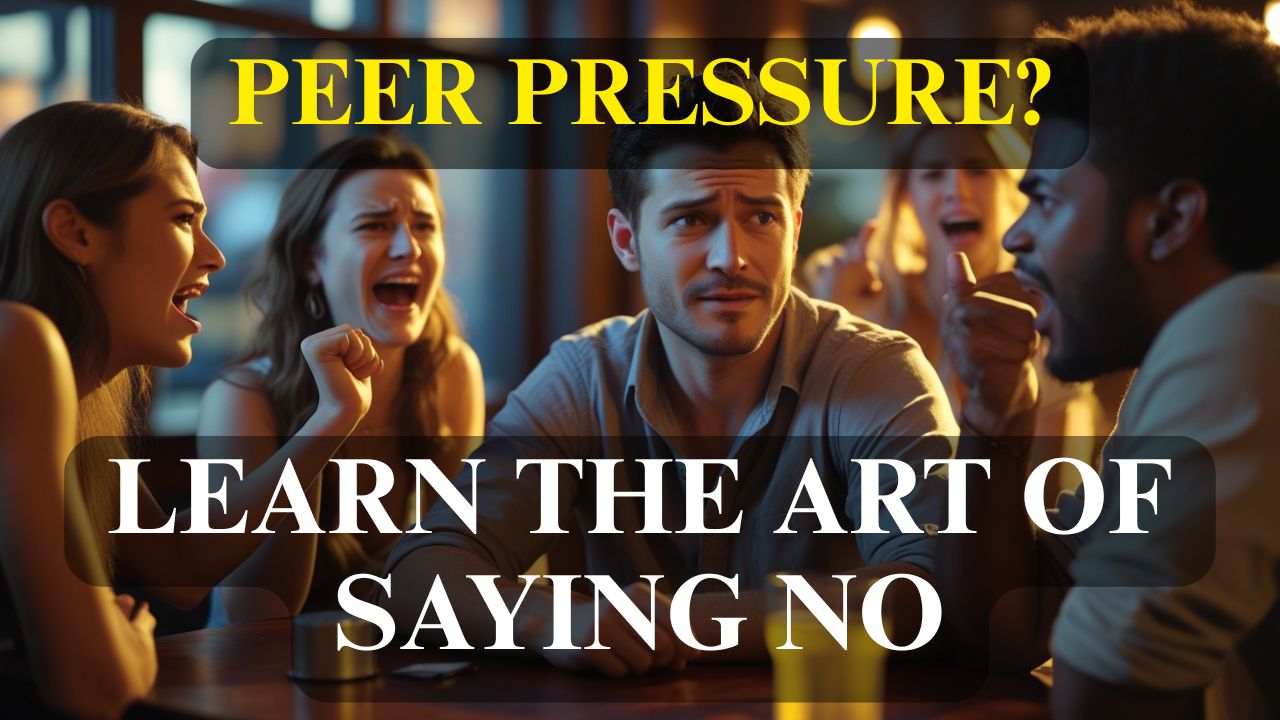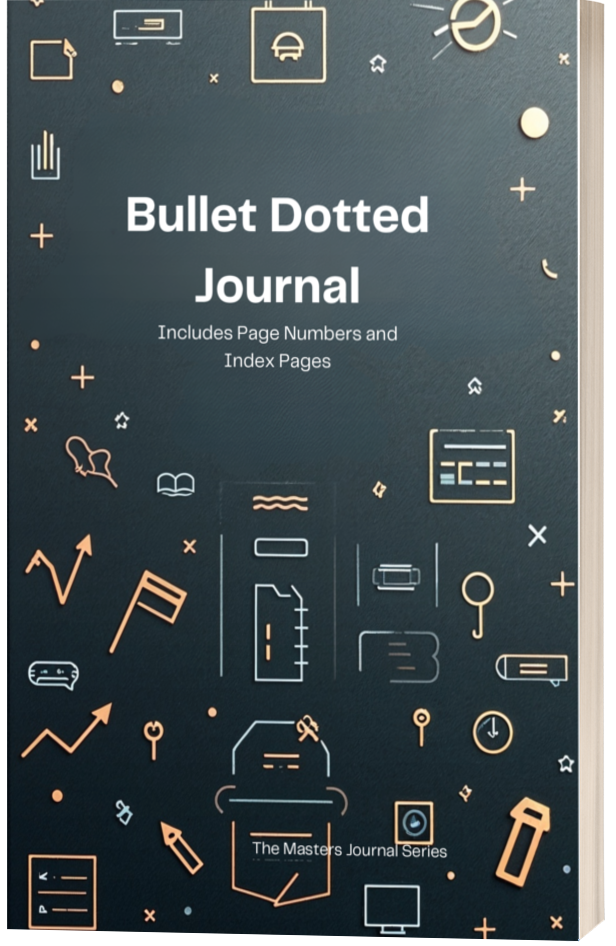The Art of Saying No: How Self-Control Leads to Healthier Choices
In our fast-paced world, where we’re constantly bombarded with demands, opportunities, and temptations, learning to say "no" is a powerful skill that can significantly improve our lives. From overcommitting to too many responsibilities to giving in to unhealthy food cravings, saying yes too often can lead to burnout, stress, and poor health. Self-control is at the heart of this art of saying "no"—it allows us to make choices that align with our values, protect our well-being, and create the space for what truly matters.
In this article, we’ll explore why saying no is essential for maintaining balance in our lives, how self-control plays a critical role in this process, and practical tips for mastering this important skill.
Why Saying No is Important
Saying "no" isn’t about being rude or shutting down opportunities; it’s about setting boundaries that protect your time, energy, and focus. In a world that glorifies busyness and constant availability, we can often feel compelled to say yes to every request or invitation that comes our way, even if it doesn't align with our goals or needs. However, constantly saying yes can lead to:
1. Burnout: Taking on too many tasks or responsibilities can overwhelm us and leave us physically, mentally, and emotionally drained. Resisting the urge to say yes all the time allows us to maintain energy and focus for what really matters.
2. Poor Health: Giving in to temptations like junk food, excessive drinking, or overworking can harm our health. Saying no to unhealthy habits or choices is a vital part of self-control and maintaining a healthy lifestyle.
3. Lack of Focus: Saying yes to everything can scatter our attention and make it harder to focus on our most important priorities. Saying no allows us to direct our attention and effort toward our core goals.
4. Stress: When we overextend ourselves by saying yes to every request, we increase our stress levels. Saying no reduces unnecessary pressure and helps us manage our commitments more effectively.
The Role of Self-Control in Saying No
Self-control is the ability to regulate our impulses, emotions, and behaviors in the face of temptations or distractions. It is an essential part of making healthier choices and setting boundaries. Here's how self-control supports the art of saying no:
1. Resisting Impulses: In many situations, we face immediate temptations or urges to say yes. For example, we might be invited to an event that clashes with an important personal goal, or we might feel compelled to buy unhealthy food because it’s available. Self-control helps us resist these impulses and make choices that are in line with our long-term well-being.
2. Prioritizing What Matters: Self-control allows us to be deliberate in our decision-making. Instead of automatically saying yes, we take a step back and evaluate whether the request aligns with our values, priorities, and long-term goals. By exercising self-control, we learn to say no to things that don’t serve us.
3. Managing Overwhelm: When faced with multiple requests or commitments, self-control helps us manage our resources—time, energy, and attention. We recognize that we can’t do everything, and by saying no to some things, we free up space for what truly matters.
4. Strengthening Boundaries: Resisting the urge to say yes is a powerful form of boundary-setting. By saying no, we send a message to others (and ourselves) that we respect our time and needs. This strengthens our personal boundaries and helps prevent burnout and resentment.
Practical Tips for Mastering the Art of Saying No
Saying no can feel uncomfortable at first, especially if you're used to people-pleasing or fear disappointing others. However, learning to say no is a key skill for healthier living and stronger self-control. Here are some practical strategies to help you say no with confidence:
1. Know Your Priorities
The first step in saying no is knowing what matters most to you. When you’re clear on your priorities, it becomes easier to determine what requests or invitations align with your values and goals. Take time to identify your personal, professional, and health-related priorities so that you can confidently assess whether a new request fits into your life.
2. Practice Mindfulness
Mindfulness helps you become more aware of your impulses and emotional responses. When faced with a request, take a moment to pause and reflect before making a decision. Ask yourself questions like:
• Does this align with my goals?
• Am I saying yes out of obligation or genuine interest?
• Do I have the time and energy for this?
Taking a mindful pause gives you the clarity to say no when needed.
3. Use a Polite but Firm Response
When you do say no, be respectful and clear in your response. You don’t have to over-explain yourself. A simple, firm yet polite response will suffice:
◇ "Thank you for thinking of me, but I have to decline."
◇ "I’m currently focused on other priorities, so I can’t commit to this right now."
◇ "I’m unable to take on any more commitments at this time."
You don’t owe anyone an elaborate explanation—just a kind and firm refusal.
4. Set Clear Boundaries
Setting boundaries is key to saying no. Be proactive in communicating your limits with others. For example, if you don’t want to take work calls after 6 PM, make it clear to colleagues that you’re unavailable during those hours. Establishing boundaries ahead of time prevents last-minute requests from becoming overwhelming.
5. Learn to Prioritize Your Own Well-Being
Saying no isn’t just about avoiding stress or overcommitment—it’s also about making sure that you’re caring for your own well-being. If a request or invitation interferes with your self-care routine, health goals, or personal time, it’s okay to decline. Prioritizing your own needs is an act of self-love, and you’ll be better equipped to help others when you take care of yourself first.
6. Practice Saying No
Like any skill, the more you practice saying no, the easier it becomes. Start small by saying no to minor requests, such as declining an invitation to a non-essential event or turning down an unnecessary purchase. As you build confidence, you’ll be able to say no to bigger commitments with ease.
Benefits of Saying No
Mastering the art of saying no brings numerous benefits to your life, including:
◇ Better Time Management: Saying no helps you prioritize tasks that are more important to your long-term success.
◇ Reduced Stress: With fewer commitments, you’ll experience less pressure and anxiety.
◇ Improved Health: Saying no to unhealthy temptations and distractions allows you to focus on better habits that support your health goals.
◇ Increased Self-Respect: Setting boundaries and saying no strengthens your sense of self-worth and respect for your time and energy.
Conclusion
Saying no is a powerful tool that supports healthier choices, greater self-control, and a more balanced life. By learning to say no, you protect your time, your energy, and your well-being, ensuring that you have the resources to focus on what truly matters. While it may take practice, mastering the art of saying no will ultimately help you lead a more intentional, fulfilled, and healthier life. Remember, every time you say no to something that doesn’t serve you, you’re saying yes to yourself and your long-term goals.














